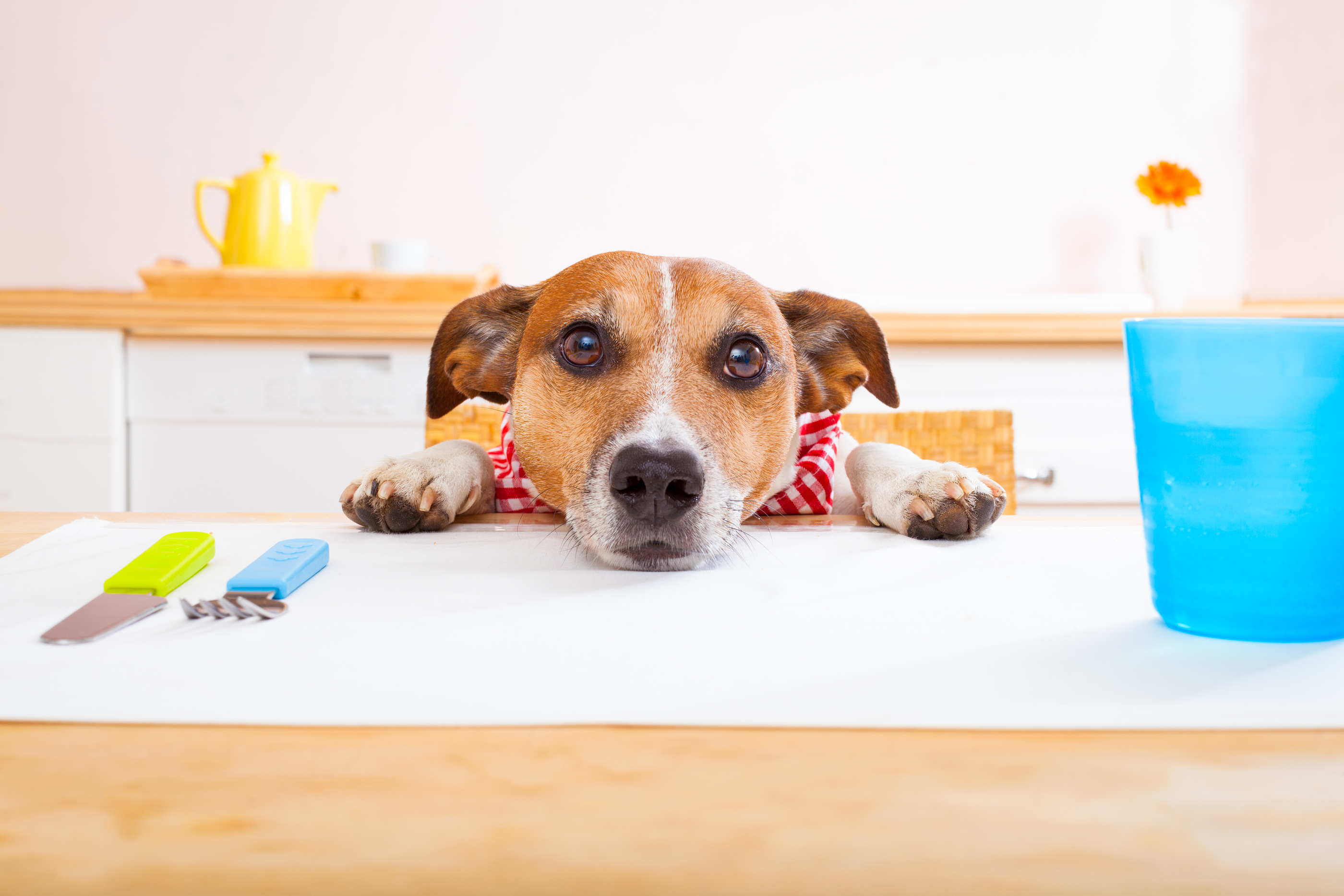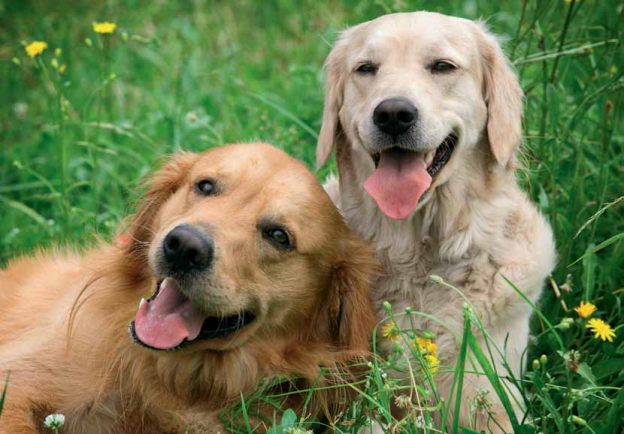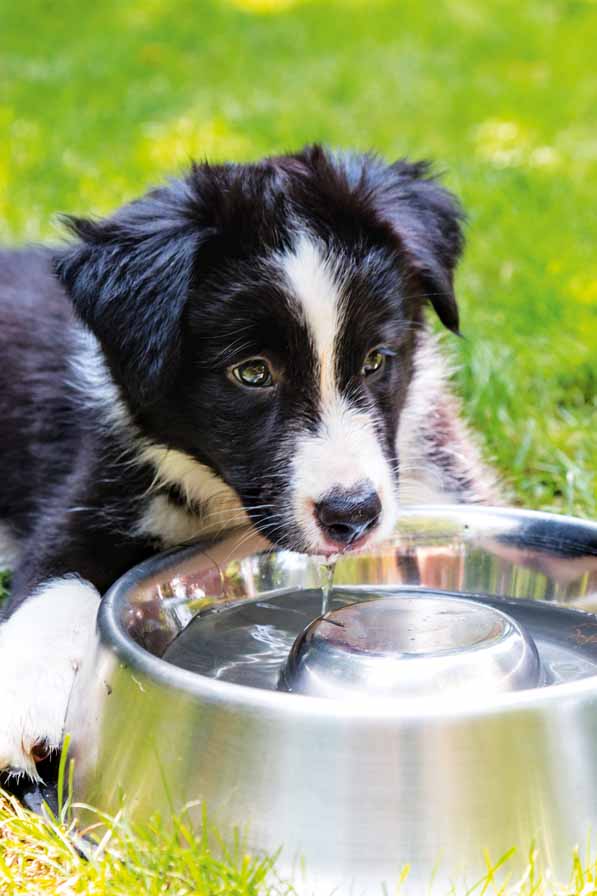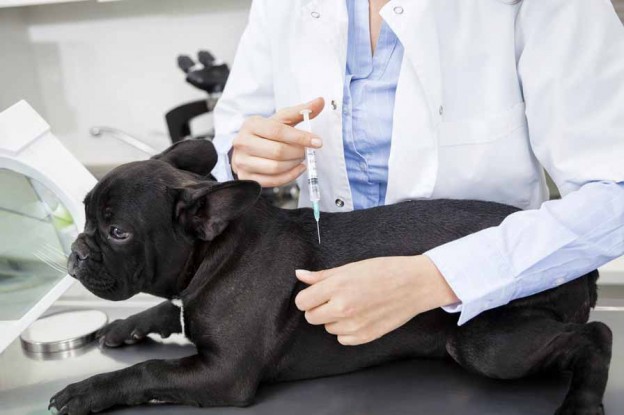
Does your pooch like indulging in too much of a good thing? He could be an emotional eater. Tim Falk reports.
As authorities battle the growing obesity problem among the Australian population, the concept of emotional eating has been brought into the limelight. For many Australians, “comfort eating” is something we do during periods of emotional turmoil. Just been dumped by your partner? Why not try curing the resulting depression with a tub of ice cream? Angry and stressed after an horrendous day at work? Maybe you’ll find happiness at the bottom of a biscuit tin.
But new research suggests that it’s not just us humans who are emotional eaters — our pets do it as well. Studies have shown that when confronted with stress, anxiety or even boredom, some dogs and cats will use food as a coping mechanism. Rather than eating simply when they’re hungry, these pets will overeat in response to how they are feeling.
And the results of this can be pretty unhealthy — after all, up to 40 per cent of Australian dogs are either overweight or obese. Animal behaviourist Dr Joanne Righetti says emotional eating has been documented in humans and other animals, including mice, so perhaps we shouldn’t be surprised that it is also affecting our pets.
“More often, however, I see the opposite: pets who do not eat due to stress,” Dr Righetti says. “When adrenalin runs through our bodies, it slows digestion and overt stress may even result in the pet evacuating their bowel and bladder. You do not need to digest a meal if you are about to fight for your life. Thus, major stress causes a reduction in eating.”
However, she says that emotional eating may be related to boredom, stress or depression, all of which are more chronic conditions. When combined with other factors, such as a lack of exercise, busy lives and the availability of unhealthy “junk” food, emotional eating could be a contributing factor to pet obesity rates in Australia.
State of mind
More research needs to be done before we can form a full picture of what causes overeating in our canine companions. However, if stresses, anxieties, fears and phobias can have an impact on our dogs’ eating habits, how can we help our furry friends feel relaxed and happy?
“A fear is nature’s way of avoiding potentially dangerous situations,” Dr Righetti explains. “Fear is normal when truly fearful stimuli are present. When an animal perceives that a frightening stimulus will occur (whether it actually does or not), this is anxiety. Anxiety can occur in all sorts of situations. Those that the dog has had a negative experience of, for example loud noises like thunder, or no experience of, for example meeting children for the first time, can cause anxiety and stress. Having nothing to do can cause stress (boredom), as can being separate from your social group (separation anxiety).
Dogs have different reactions to these stressors. Many dogs, due to adrenalin energy build-up, react in an external manner. They may try to escape, dig holes or bark. Other dogs, however, will eat more.
“Socialisation when young is a very important part of a dog’s life,” Dr Righetti says. “Controlled and positive introductions to experiences in life are the best way to prevent any anxieties later in life. When an anxiety has developed, gradual introductions to the frightening stimulus can help — this is known as desensitisation. This is the best method for solving anxiety issues.”
There are also management strategies that can be used to help prevent doggy stress. For example, having a dog walker walk your dog may alleviate the stress of separation anxiety for a little while.
If your dog is struggling with boredom, try giving him an occupation. Many breeds were traditionally working dogs and now have very little to do in our homes and backyards, especially when left alone all day.
“Owners can look at what drives their dog most. Food? Toys? Companionship? They can then address these needs,” Dr Righetti says. “So if a dog needs companionship, they may hire a dog walker, ask a friend to visit or use doggy day care. If their dog likes toys, they can rotate toys around. Food- and toy-oriented dogs will love food-releasing toys. ‘Hunting’ for food helps occupy a dog and helps with weight reduction, as the dog spends longer searching for food.”
Up to you
Of course, owners have a massive role to play when it comes to stopping their pet from overeating. It’s important not to overfeed your pooch, as overweight pets have a shorter lifespan and are at a much greater risk of suffering any number of health conditions.
“If a pet is an ‘emotional eater’, though, to take away their safety net — food — would actually stress them more,” Dr Righetti says. “It’s better to provide food but do so in a way that the dog can have a longer enjoyment period with their favourite activity — eating — so use a food-dispensing toy.”
It is important also to understand the cause of the dog’s stress and remove the stressor, or work on desensitisation. With a patient and considered approach, your dog’s comfort eating can soon become a thing of the past.
“Owners are basically everything to their dogs,” Dr Righetti says. “They are the food supply, the gym, the emotional support. We need to be mindful of this and satisfy canine needs.”
Weight loss tips
Does your portly pooch need to shed a few kilos? Dr Righetti has some handy tips to help your dog get back in shape.
“Move more. Gentle swimming and water therapy can help seriously overweight pets, [as will] walking gently, building up over time to a longer period or more strenuous walks, for example uphill. Games such as fetch will get many dogs moving,” she says.
“Then, there are also sports such as agility, fly ball, herding, dock diving etc. Obese pets should have a vet check prior to commencing any new exercise program.
“Weight-reduction diets can be used. These help fill the dog without the calorie load. Again, vet supervision may be necessary in severely overweight pets.”







